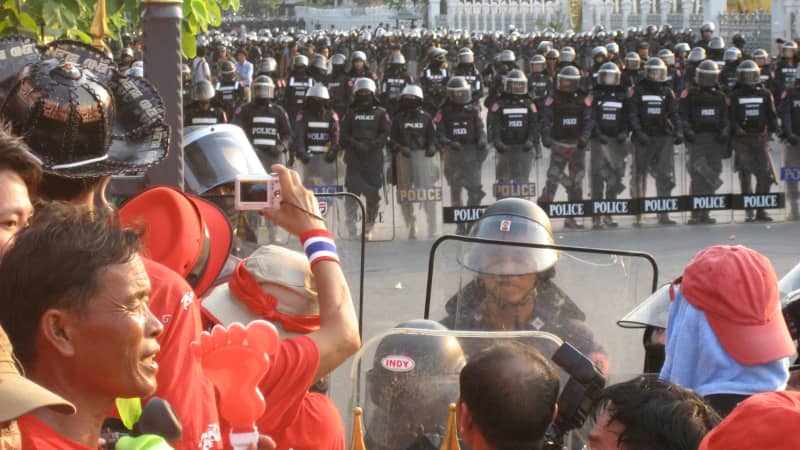Protests & Power: Alexei Anisin, Ph.D. featured on BBC Thailand

Exploring the effectiveness of peaceful protests, the BBC (Thailand division) interviewed AAU Senior Lecturer, Alexei Anisin, Ph.D. for his expert opinion on the role of protests and their forms- violet and nonviolent- in effecting change in one’s own country or government.
“My quantitative analyses of two centuries of different regime-change seeking movements, including those engaged in civil wars, has revealed that the greatest frequencies of success for a given movement are observable in cases that feature both a mixture of unarmed violent struggle (rocks, harmful blockades, building seizures) as well as a nonviolent struggle (peaceful marches, occupations, boycotts, etc). These results overturned common knowledge about nonviolence that was built over more than a decade of comparative inquiry in the last decade or so.”
– Alexei Anisin, 2022
With reference to the research conducted by Erika Chenoweth and Maria Stefan, Alexei disputes the commonly held beliefs that one form of protest over another will succeed to create an effective shift in power. Using the protests in both Thailand and Belarus as examples, Alexei explores the many nuances in the power struggle between political sway and public outcry.
This article is in Thai from BBC Thailand news, we recommend you use the chrome google translate extension to read it in your native language. The BBC provides trusted worldwide and UK news coverage as well as regional and local perspectives. The BBC also publishes articles related to lifestyle, health, business, and technology news.